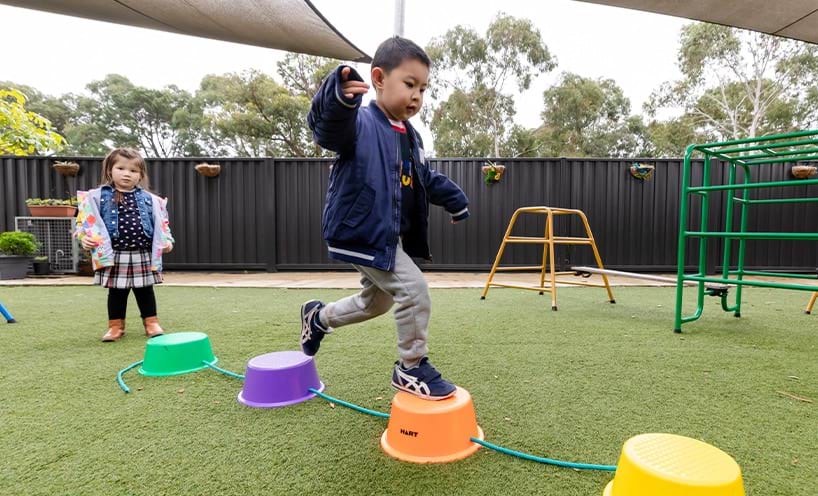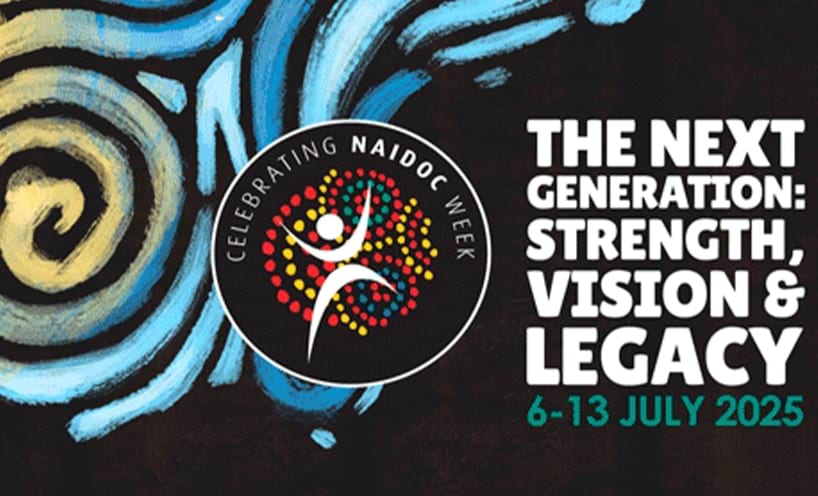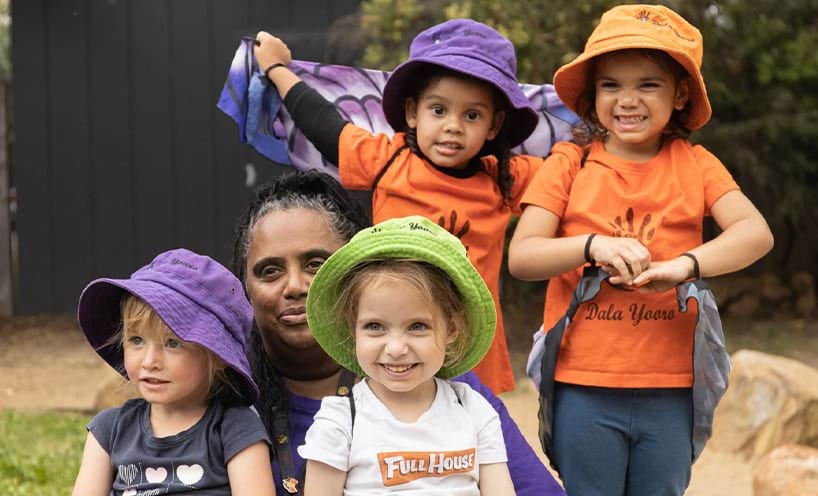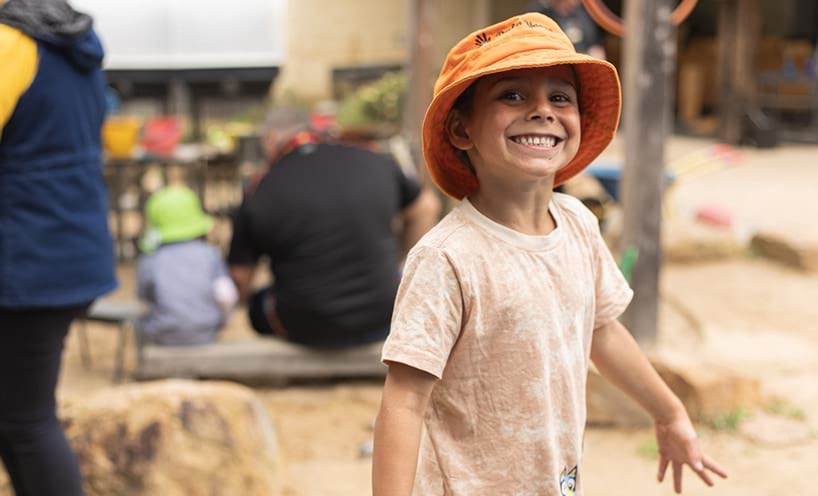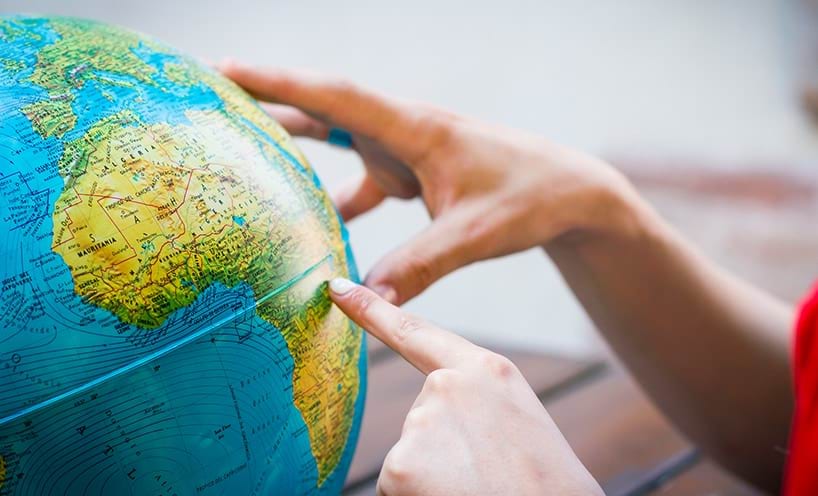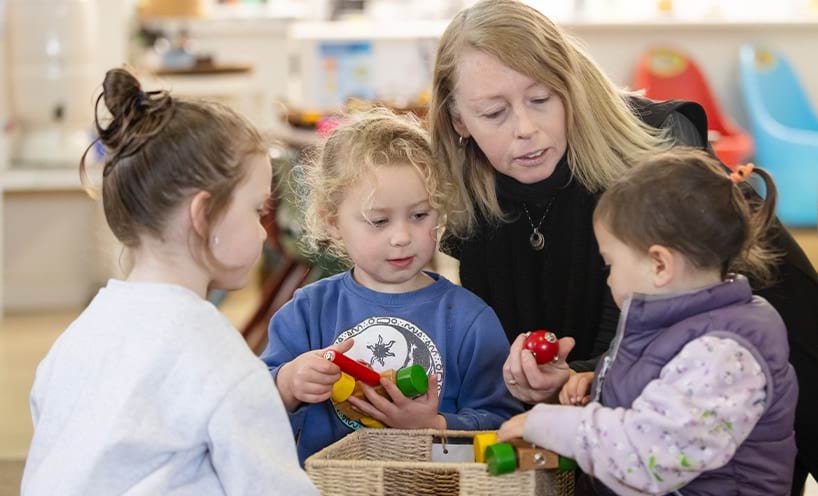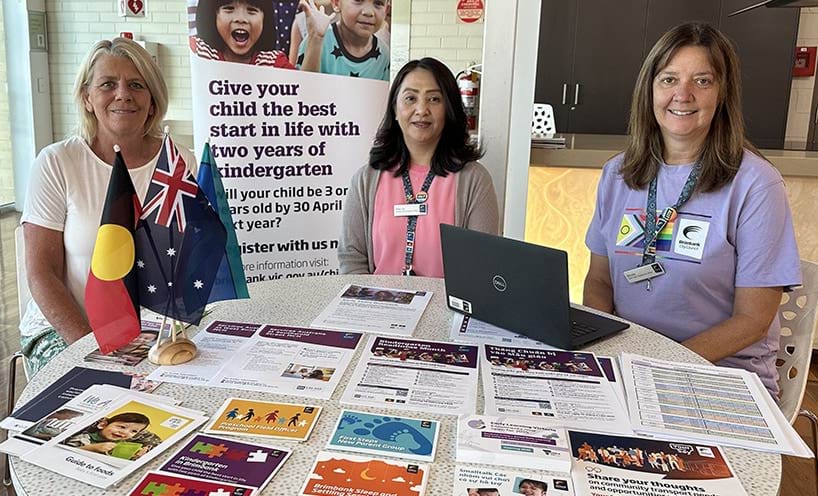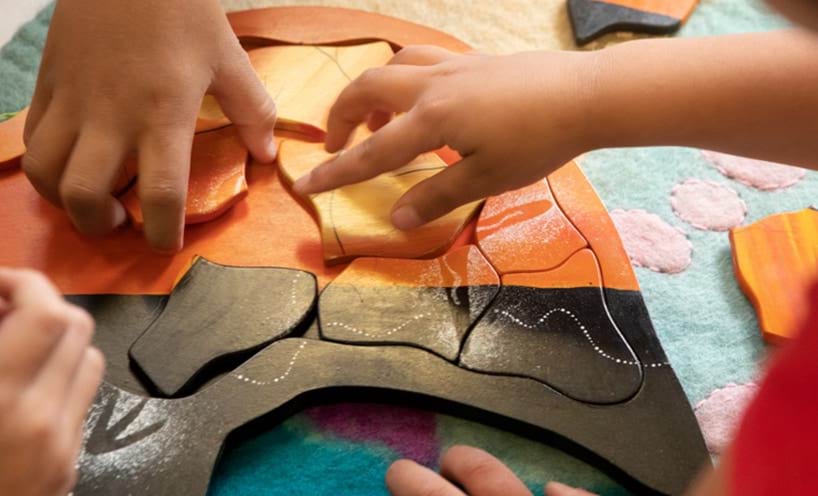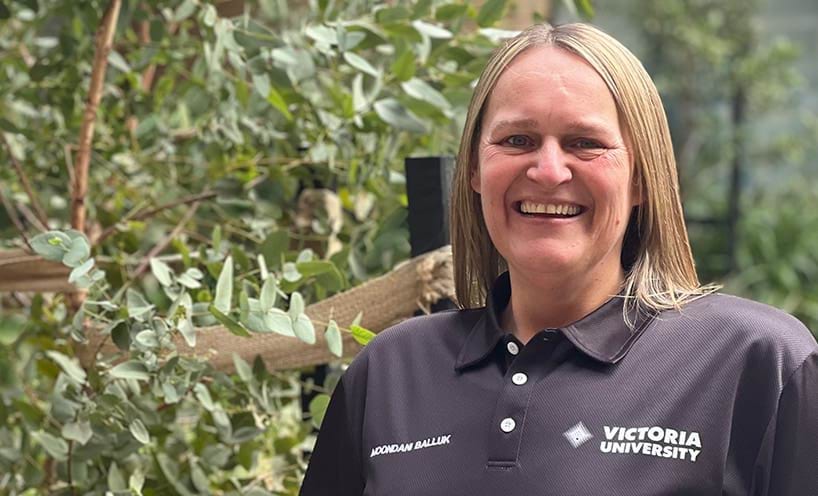- Published by:
- Department of Education
- Date:
- 2 July 2025
The Early Childhood Update e-newsletter is sent to early childhood teachers and workers, but is open to anyone interested in best practice in early years education and evidence-based teaching approaches. Subscribe here to receive the e-newsletter(opens in a new window).
A challenging time for the early childhood sector
Investigation of alleged incidents in childcare centres.
Dear colleagues
As you would be aware, Victoria Police is conducting a criminal investigation into allegations of sexual assault against children in a number of childcare centres across Melbourne.
These allegations are among the most distressing possible, for a sector charged with safeguarding children.
The alleged offender is now in custody, and the Victoria Police investigation is ongoing. The Regulatory Authority (QARD) has also launched a coordinated investigation into this matter.
This situation does not reflect the overwhelming majority of professionals in our sector. Every day, you demonstrate integrity, compassion and an unwavering commitment to children’s safety and wellbeing. That dedication matters now more than ever.
This is a confronting situation for staff and families. You may be getting questions from families about the matter. You are encouraged to direct families to the dedicated website and advice line (1800 791 241) if they have concerns. The website also lists the services and dates where the alleged offender worked, over the past 8 years.
The safety and wellbeing of children attending early childhood services in Victoria is paramount. Children have the right to be safe from harm in all environments.
Under the National Law, Approved Providers must ensure services provide a safe environment for quality care and learning. Services must report matters including any serious incidents, allegations of abuse and any complaints alleging that a serious incident has occurred.
Anyone with concerns about the safety of children in early childhood services should call QARD on 1300 307 415. Reports can be made anonymously. All notifications are taken seriously and investigated.
Yesterday, the Premier and Minister for Children announced an urgent review into childcare safety in Victoria, as well as bringing forward the implementation of a range of child safety measures, including:
- creating a Victorian register of childcare workers
- banning personal devices in childcare centres by Friday 26 September 2025.
The review will focus on immediate actions we can take, based on work already occurring at the national level with the Commonwealth and other state and territory reviews. This will include examining options for installing CCTV in childcare centres.
I will provide further information on what this means for services as it becomes available.
I encourage you to share information about support with your colleagues. The Early Childhood Wellbeing Support Program provides free counselling for early childhood education and care staff.
Staff can access professional and confidential support through TELUS Health by calling 1800 971 573. This phone line is specifically for staff working in early childhood services.
A separate dedicated advice line is available for families: 1800 791 241. This line operates 7 days a week: from 8 am to 9 pm on weekdays and from 8 am to 5 pm on weekends.
Please seek support at this difficult time – it is understandable that you might experience a range of emotions in relation to the impact on children, their families, colleagues and the sector as a whole.
Please take care of yourselves and each other. Thank you for your ongoing commitment to the children in your care.
Bronwen FitzGerald
Deputy Secretary
Early Childhood Education
Arrival – kindergarten attendance data collection
Collecting and reporting attendance data using Arrival is progressing.
Sessional services have begun using Arrival to collect and report attendance data.
A range of services have successfully started the transition from paper-based attendance collection methods to digital sign-in and sign-out using Arrival, including:
- early years management organisations
- council-based services
- school-based services.
Services run by community-based organisations and private sector organisations using paper-based collection methods will start to transition activities to Arrival during July and August 2025.
The department has entered into data-sharing agreements with several third-party software providers that are already used by many sessional kindergarten services. We will contact services using other third-party software providers regarding next steps for enabling sharing of attendance data. Once an agreement is in place, the attendance information that these services collect (through their third-party provider) will flow directly into Arrival for kindergarten attendance reporting.
If you have any questions about the next steps for collecting and reporting kindergarten attendance data through Arrival, contact the Arrival Implementation team by email: arrival.implementation@education.vic.gov.au
Arrival attendance collection information sessions
We are continuing to offer information sessions throughout July and August to support services with the transition. To register for a session, refer to: Arrival attendance collection information sessions.
Updated guidance and support
Updated guidance and support for using Arrival is available through the ‘Help’ link at the top right-hand corner of your Arrival system screen.
For additional information and resources to support families using Arrival, refer to: Arrival: attendance data collection.
For technical support when using the system, services should contact the Arrival Helpdesk:
Find out more
For further enquiries about accessing Arrival, contact the Arrival Implementation team by email: arrival.implementation@education.vic.gov.au(opens in a new window)
NAIDOC Week 2025
Use resources to celebrate First Nations culture and history, and register to attend the Victorian Koorie Early Years Exhibition Showcase on 2 August 2025.
NAIDOC Week will run from Sunday 6 to Sunday 13 July 2025, celebrating and recognising the history, culture and achievements of First Nations peoples.
It’s an opportunity for all Australians to learn more about First Nations cultures and histories, and celebrate the world’s oldest, continuous living culture.
The theme, ‘The Next Generation: Strength, Vision and Legacy’, celebrates 50 years of NAIDOC Week. It encourages us to reflect on the achievements of the past and celebrate the bright future ahead.
Get involved
NAIDOC Week is a valuable opportunity for early childhood services to connect with, amplify, consider and respect First Nations voices.
A range of NAIDOC Week 2025 resources are available to help you celebrate at your service. The resources can be used any time of the year, not just during NAIDOC Week.
Victorian Koorie Early Years Exhibition Showcase
The Victorian Aboriginal Education Association Incorporated (VAEAI) is hosting the Victorian Koorie Early Years Exhibition Showcase in early August, and all kindergarten services are invited to attend.
The event will showcase Victorian Koorie artists, authors and creators who provide services relevant to kindergarten services and educators. There will be keynote speakers, workshops, and stalls where you can purchase educational resources on the day.
The event will help services embed First Nations perspectives into their programs, supporting the next generation of children. It will also demonstrate the successes of Victoria's Aboriginal Community Controlled Organisation early childhood sector.
Event details
Date: Saturday 2 August 2025
Time: 10 am to 4 pm
Platform: in-person at the Aborigines Advancement League, 2 Watt Street, Thornbury, Victoria 3071
Cost: free.
To register, complete the Victorian Koorie Early Years Exhibition Showcase registration form.
Find out more
For further enquiries, please contact VAEAI by email: vaeai@vaeai.org.au
Helping children from priority groups access more hours of kindergarten
How eligible children are being supported with more hours of Three-and Four-Year-Old Kindergarten.
All children benefit from more hours of early childhood education, and children in priority groups are likely to receive especially high benefits from more hours of kindergarten.
Early Start Kindergarten (ESK) helps eligible children to access 15 hours per week of free or low-cost Three-Year-Old Kindergarten with a qualified teacher.
From 2026, the same groups of children are eligible for Pre-Prep — more hours of funded Four-Year-Old Kindergarten — no matter where they live.
Eligible children include those who:
- identify as Aboriginal or Torres Strait Islander
- are from a refugee or asylum seeker background
- have had contact with Child Protection or are in out-of-home care.
Children enrolled in ESK or supported by the Access to Early Learning program for Three-Year-Old Kindergarten are also eligible for Pre-Prep the following year. Children who weren’t enrolled in ESK but otherwise meet the eligibility criteria can still access Pre-Prep from 2026.
Changes to ESK eligibility
Recent changes to the process for enrolling in ESK mean that children (and children with a parent, carer or legal guardian) who previously held a refugee or asylum seeker visa are eligible for ESK and Pre-Prep and no longer need to seek a specific exemption from the department. This will make it easier for these families to enrol and mean less administration for services.
More information on the eligibility criteria for ESK and Pre-Prep in 2026 will be made available on the Early Start Kindergarten information for professionals webpage in the coming weeks.
Services are encouraged to discuss the benefits of early childhood education with families and enrol eligible children in ESK and Pre-Prep so they can benefit from more hours of kindergarten. Enrolling eligible children in ESK also helps with planning for the delivery of Pre-Prep to eligible children the following year.
Find out more
For more information, refer to:
- Early Start Kindergarten
- Operational policies supporting the Best Start, Best Life reforms(opens in a new window)
- The evidence behind 2 years and more time in kindergarten(opens in a new window)
- Communicating with families(opens in a new window).
For further enquiries, contact your local Early Childhood Improvement Branch(opens in a new window).
National Aboriginal and Torres Strait Islander Children’s Day
Use our resource kit to help celebrate the day at your service.
National Aboriginal and Torres Strait Islander Children’s Day is celebrated every year on 4 August. It’s an opportunity for all Australians to show their support for Aboriginal and Torres Strait Islander children and learn about the impact that culture, family and community has on their lives.
This year’s theme is Little Footsteps, Big Future. The theme honours the journeys children take as they grow – each step is guided by culture, community and connection to country.
Each year to celebrate Children’s Day, we work with our partners in Aboriginal education, the Victorian Aboriginal Education Association Incorporated (VAEAI) to develop and distribute a resource kit to more than 3,000 Victorian government-funded kindergartens.
This year, the kit will focus on the importance of Acknowledgements of Country and Traditional Owners. It will include companion teaching notes with fun ideas and activities for educators to use with children. Each activity is aligned with the learning and development outcomes of the Victorian Early Years Learning and Development Framework. The resources will help to embed Aboriginal perspectives in learning and enact the vision of the Marrung Aboriginal Education Plan 2016-2026. Kindergartens will receive the resource by mail in time for Children’s Day.
About Children’s Day
Children’s Day is an initiative of the Secretariat of National Aboriginal and Islander Child Care. The day is held to celebrate the strengths and culture of Aboriginal and Torres Strait Islander children across Australia.
It began in 1988 amid protests during Australia’s bicentennial year. The day was chosen to communally celebrate the birthdays of children of the Stolen Generations, who were taken from their families at a young age without knowing their birthdays.
As Victorians, the journey of truth-telling through the Yoorrook Justice Commission provides an opportunity to reflect on the stories and experiences of the Stolen Generations and the important role that education plays in healing and moving forward.
Supporting cultural safety
To help you enact the vision of Marrung in your services, you can use these resources to support Koorie children and families or consider developing your own Reconciliation Action Plan.
You can also learn more about self-determination in the broader education system by reading Strengthening Aboriginal Self-Determination in Education - Campfire Conversations: reflections and directions 2022–23.
Find out more
For more information, refer to:
Complying with Australia’s Foreign Relations Act
School and school council-run early childhood services interested in forming new or varying existing foreign arrangements in 2025, must contact the department by 15 August 2025.
We are seeking expressions of interest (EOI) from all school and school-council run early childhood education and care (ECEC) services wanting to form a new or vary an existing foreign arrangement in 2025.
This is in line with Australia’s foreign policy objectives under the Australia’s Foreign Relations (State and Territory Arrangements) Act 2020.
Under the Act, all school and school-council run ECEC services must submit their proposed arrangements or variations to existing arrangements to the Australian Government Department of Foreign Affairs and Trade through the department. This requirement does not apply to services not run by a school or school council.
Before negotiating or entering into arrangements with foreign entities, please contact our International Education and Partnerships Division Stakeholder Engagement team.
This ensures arrangements between state and territory government departments and international counterparts are aligned to Australia’s foreign policy objectives.
The EOI process for new or existing foreign arrangements happens twice a year ‒ in Term 1 and in July.
Submissions for the current EOI process close at 5 pm on Friday 15 August 2025.
Arrangements needing approval
The legislation extends to any written arrangements, agreements or contracts between school and school-council run ECEC services, and foreign entities, including overseas governments, universities and other schools.
Common examples of foreign arrangements requiring Australian Government approval include:
- partnerships with foreign ECEC providers or services
- agreements
- written arrangements
- contracts
- memoranda of understanding (MoU)
- teacher exchange programs.
Arrangements may be in any form, and do not need to be signed or legally binding to fall within the scope of the Act.
How to submit an EOI
If you are considering varying or entering into a new foreign arrangement between now and Term 1, 2026, please complete the below documents and submit them to the Stakeholder Engagement team by Friday 15 August 2025:
Find out more
For further enquiries, contact the Stakeholder Engagement team by email: ied.stakeholder.engagement@education.vic.gov.au
No Jab No Play legislation
Find out how the legislation affects enrolment and your obligations.
The No Jab No Play legislation aims to reduce the risk of vaccine-preventable diseases in the early childhood community by increasing vaccination rates.
Under the legislation, early childhood education and care (ECEC) services must get a current Immunisation History Statement from the Australian Immunisation Register (AIR) from parents or guardians before enrolling a child. Other documents, such as a letter from a general practitioner (GP) or local council, are not accepted as evidence.
Services can only enrol a child if it is within 2 months of them first attending and when the Immunisation History Statement shows one of the following – the child:
- is up to date with their immunisations (no vaccines are overdue 2 months before the first day of attending)
- has started a recognised catch-up schedule and the next due vaccinations on the schedule are not overdue (2 months before the first day of attending)
- has a medical condition that prevents them from being fully immunised for their age.
If the parent or guardian cannot provide the statement, the child might still be eligible to enrol under a 16-week support period while the service works with the family to get the necessary immunisations or documentation.
Vaccine hesitancy or conscientious objection to vaccination is not a valid exemption when enrolling a child. All exemptions must be based on medical need, certified by a medical practitioner and recorded on the child’s AIR.
The 16-week support period
Immunisation status or missing documentation must not be a barrier for vulnerable children accessing kindergarten. Service providers must enrol eligible children experiencing vulnerability or disadvantage under the 16-week support period. An assessment form is available to help services determine eligibility.
During the support period, services must encourage parents and guardians to bring their child’s vaccinations up to date and get the required documentation.
Once enrolled, service providers must not exclude children who are not up to date with their immunisations, except if there is an outbreak of infectious disease at the service.
For more information about the support period, including eligibility criteria and the assessment form, refer to: After enrolment – ‘No Jab, No Play’ requirements.
When enrolment cannot proceed
Enrolment cannot go ahead if both:
- the parent or guardian does not provide an acceptable Immunisation History Statement
- the service provider has determined that the child is not eligible for the support period.
If this happens, the service provider should:
- advise the parent or guardian that, under Victorian legislation, they are not allowed to enrol the child without acceptable documentation
- encourage the parent or guardian to organise an appointment with their GP or local council immunisation service to arrange catch-up vaccination
- refer the parent or guardian to a specialist immunisation service, or encourage them to speak to their GP, if they have any questions or concerns about vaccination.
The following specialist immunisation services are available:
- the Royal Children’s Hospital Melbourne Immunisation Clinic on 1300 882 924, option 2
- Monash Immunisation, Monash Medical Centre on 1300 882 924, option 5. Telehealth is available with these services
- Victoria’s vaccine safety service, SAEFVIC on 1300 882 924, option 1.
If a child catches up with their vaccination schedule and the parent or guardian provides an updated Immunisation History Statement, they can then be enrolled.
For more advice on managing when enrolment cannot proceed, refer to: Before enrolment - 'No Jab, No Play' requirements.
Maintaining up-to-date records
Parents and guardians must provide the service with a new immunisation statement at least every 7 months (except for those enrolled in the 16-week support period).
This means services must remind parents and guardians twice a year to provide evidence of up-to-date immunisation for their child.
Under the Education and Care Services National Regulations, regulation 162, services must ensure that children’s enrolment records are accurate (regulation 177). This includes, but is not limited to, the immunisation status of the child.
The department's early childhood Regulation Authority, QARD, regulates ECEC services. Compliance visits include checking if children’s enrolment records have immunisation status and immunisation certificates (or suitable exemption) in line with No Jab, No Play legislation.
All services must have policies and procedures to manage infectious disease outbreaks.
Services should promote awareness of infectious diseases and safe hygiene practices to their community to help to prevent outbreaks.
Find out more
For more information, refer to the ACECQA National Quality Framework.
For further enquiries, contact your local Quality and Assessment and Regulation Regional Office.
Helping multicultural families access kindergarten
How a council in Melbourne’s west is raising awareness of the importance and availability of kindergarten.
The Brimbank City Council local government area (LGA) is one of the most multicultural areas in Victoria. Nearly half its population is born overseas and more than 55% speak a language other than English at home. More than 160 different languages are spoken in the municipality.
Each year, the council runs a Kindergarten Readiness Month campaign to help families learn about the value of kindergarten, the availability of Free Kinder, and how to register and enrol.
For culturally and linguistically diverse (CALD) families, kindergarten may be unfamiliar or different from early learning options in their home country. Kindergarten Readiness Month helps local parents and carers understand the importance of Three- and Four-Year-Old Kindergarten for their child’s learning and development.
Creating community awareness
Each year during Kindergarten Readiness Month, all sessional kindergarten services across Brimbank are encouraged to hold open days to coincide with registrations opening.
The campaign is developed in collaboration with Brimbank LGA’s early years providers and stakeholders through its Central Registration and Enrolment Scheme.
At the open days, educators welcome families, give tours and answer questions. Some services give out information packs, and interpreters are available to support families.
This year, 36 kindergarten services took part. They held 90-minute open days at various times to suit working families.
The Kindergarten Readiness Month campaign begins with 2 weeks of outreach activities to raise awareness and invite families to open days along with directly supporting them with the kindergarten registration process.
These included information sessions run by the council’s CALD outreach worker and early years teams, in collaboration with the local Maternal and Child Health Service and preschool field officers. The sessions were held in libraries, community centres and leisure centres.
The council’s early years team also reached multicultural families through translated flyers, billboards, targeted promotions with agencies supporting CALD families, stakeholder events and school hubs.
Positive impact
Rakhi Khanna, the council’s early years programs, planning and partnership coordinator, said the campaign made a strong impression on local families this year.
‘We have seen a 500% increase in 2025 of families attending an open day as compared to 2024,’ Rakhi said.
‘We had 585 adults and 348 children attend a kindergarten open day across the 2 weeks which was remarkable – one kindergarten welcomed 80 families.’
Early planning with partners, strong promotion, active outreach and direct engagement with local kindergarten educators contributed to this significant increase in participation.
‘The council is committed to building parent and caregiver confidence and understanding the importance of Three- and Four-Year-Old Kindergarten for their child’s learning and development,’ Rakhi said.
Find out more
For more information, refer to:
Building cultural understanding through yarning networks
Find out how the networks are helping early childhood educators incorporate Aboriginal and Torres Strait Islander culture in their kindergarten program.
Our Southern Melbourne Area Early Childhood Improvement Branch (ECIB) runs local government area-based yarning networks each term. These provide valuable opportunities for early years educators to come together and deepen their understanding of Aboriginal and Torres Strait Islander cultures.
The ECIB organises the networks, in collaboration with the Koorie Engagement Support Officers, local government and early years service providers.
During the sessions, early years educators have the chance to ask questions, share ideas and explore meaningful ways to celebrate Aboriginal and Torres Strait Islander cultures within their services.
Learning together
The terms 1 and 2, 2025 yarning networks explored a range of topics and experiences.
At the City of Casey Term 1 network, held at Mayone Bulluk Kindergarten, guest speaker Jaeden Williams shared his personal story. He offered powerful insights into Boonwurrung culture and ways of being.
Participant Peta McGregor, kindergarten teacher at Strathaird Kindergarten, said she gained a lot of practical knowledge from the session.
‘Attending the session is not only informative, but with each session that I attend my confidence to embed a genuine connection to Country and share information with the children increases,’ she said.
Gaining confidence
To build on her learning, Peta attended again in Term 2, 2025, where she heard from guest speaker Steve Parker, a Boonwurrung, Yorta Yorta, Erub man from Millowl Dreaming. The session began with a smoking ceremony before Steve spoke about aspects of Boonwurrung culture, including some Boonwurrung words. Educators also had a chance to network in small groups and ask questions.
‘Although I have witnessed a smoking ceremony prior to the yarning, it was the first opportunity that I have had to walk through and wash the smoke over myself – to feel fully engaged within the ceremony,’ Peta said.
Peta has since incorporated what she learned into her kindergarten program, teaching the children Boonwurrung words as part of their Acknowledgement of Country.
She has also shared her learnings with her team to help them develop their knowledge and understanding.
Peta encourages other educators to get involved in the yarning networks.
‘Yarning is a safe space — we are reminded that there are no silly questions, all questions lead to learning,’ she said.
Sharing knowledge
Elsewhere in Term 1, the City of Greater Dandenong yarning network saw a fantastic turnout. The host service, Dandenong North Kindergarten, shared how they incorporate culture into their kindergarten program. Best Start facilitator Mikayla George gave an engaging presentation about Aboriginal seasons Iuk and Warinj.
In Cardinia Shire, the yarning circle was led by the team from the Victoria Aboriginal Community Services Association Limited. They delivered an interactive learning experience called Camp Fire Conversations. The session encouraged educators to reflect on the way they embed Indigenous perspectives into their practice and equipped them with insights and strategies to strengthen their capabilities as educators in the First Nations space.
Find out more
To find out about events happening in your area, contact your local Early Childhood Improvement Branch.
Supporting First Nations students studying early childhood education
Learn more about financial supports and study pathways in early childhood education for First Nations people.
The department offers a range of scholarships and programs to support students to reach their goal of becoming early childhood teachers and educators.
Under the Early Childhood Tertiary Partnerships (ECTP) program, the department has funded universities, registered training organisations and TAFEs to offer courses for future teachers and educators that are designed to provide strengthened academic and workplace mentoring tailored to suit the needs of students from all backgrounds, including First Nations peoples.
Creating a culturally safe learning journey
Victoria University (VU) TAFE has dedicated support for First Nations students, including personalised mentoring and practical help.
Through her role as Koorie Liaison Officer at VU TAFE, Gunditjmara woman Rhiannon Madden (pictured above) shares her knowledge and guidance in ways that ensure Aboriginal and Torres Strait Islander students feel a shared appreciation of their cultural identity and enjoy a culturally safe learning environment.
Rhiannon said the level of academic and practical support is customised to each student's circumstances, as some seek more frequent contact and assistance than others.
‘My focus is creating a positive, culturally safe and supportive learning journey, guiding students through consistent mentoring and readily available assistance to explore their career in early childhood education,’ she said.
‘Students frequently praise the mentoring and cultural support, citing the invaluable guidance and sense of place it creates.’
Improved educational outcomes
As part of her role, Rhiannon helps eligible students to access practical help such as the financial supports available through the Victorian Government’s Aboriginal Pathways Scholarships Program.
Under the program, Aboriginal and Torres Strait Islander people who want to become an early childhood educator or teacher can apply for financial support of between $2,500 and $34,000, depending on the course, to help cover costs while they study. The support means students can focus on their studies, rather than worrying about expenses.
‘Students express gratitude for the financial relief, stating that the scholarship removes a major barrier to education.’
Removing barriers to education
Rhiannon believes that by removing these known barriers to education, the VU TAFE program provides students with a sense of belonging within a sometimes challenging academic environment. She said that celebrating and fostering First Nations voices is significant, particularly for early childhood.
‘It's especially important … to bring culture and identity into early learning settings, shaping stronger foundations for the next generation.’
Find out more
To find out more about financial support to study early childhood education, or to apply, refer to Financial support to study and work in early childhood.
The scholarship programs are available to those starting to study and already studying (including those in their final year).
For further enquiries, including about eligibility, contact BUSY At Work:
- phone: 1300 161 396
- email: EC.Financial.Support@education.vic.gov.au
For more information about the Early Childhood Tertiary Partnerships program, refer to Early Childhood Tertiary Partnerships program.
